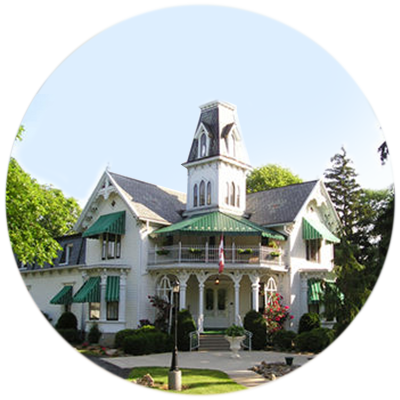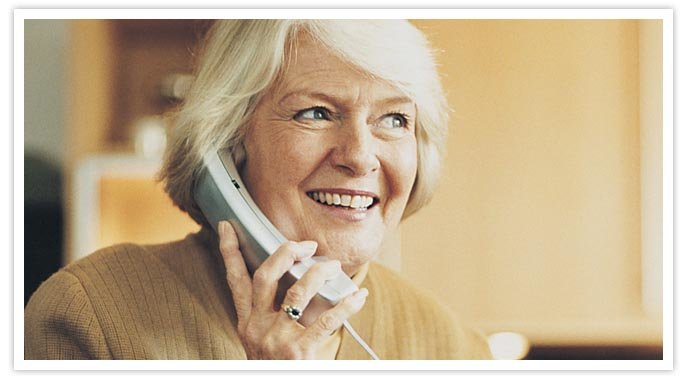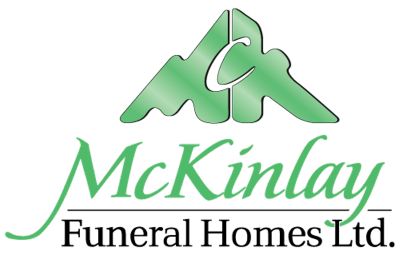Frequently asked questions
When having an immediate cremation, should I have my final good-bye at the hospital/nursing home or at the Funeral Home?
Often, with immediate cremation, we are presented with our final good-bye in a clinical setting. Whether it be at the hospital or the nursing home, it does not always make for a great final picture: the sights, sounds and smells can take away from the experience. Often in these cases, there are also family several hours away that are not able to make it to the facility in time. That is why we provide a warm, spacious, home-like setting to provide that final good-bye. It is amazing the difference a little soft lighting, soft music, or a bath or a shave can make. We give that option to every family, for no extra charge. We would suggest having a final good-bye in that setting.
Does my loved one require a casket for cremation?
Yes. The casket - sometimes called a cremation container - acts as a vehicle for your loved one in their journey from the funeral home, to the crematorium and eventually into the cremation retort. For immediate cremation, we often suggest using a very basic cremation casket. The casket serves a practical purpose, as it allows the crematorium staff to place your loved one into the retort in a safe and dignified manner.
Does my loved one require an urn?
No. An urn is an ornamental purchase and is not a requirement. The crematorium supplies a temporary container which can be used for burial or to be taken home. If you do decide to purchase an urn, ensure that you speak with a funeral director about what you hope to do with your loved one’s cremated remains. They may have different options depending on whether you are shipping the urn overseas, having the cremated remains buried, placed in a niche at a columbarium, scattered at the farm, or any combination.
What sort of urn should I use for burial?
Almost any urn is appropriate for burial. Your decision will ultimately depend on what your wishes are for your loved one’s cremated remains in the years to come. If you wish for your loved one to eventually go back to the earth, you should select a wood urn or a biodegradable one. If you wish for the urn to last the test of time you should choose a marble or metal urn.
What is an urn vault?
An urn vault serves to protect an urn from the elements. They are often made of fibreglass or concrete.
Does my loved one require an urn vault at the cemetery?
Most cemeteries do not require an urn vault. However, it does ultimately depends on the cemetery bi-laws.
Does my loved one go right from the place of death to the crematorium?
No, though this is a common misconception. First, our staff make our way to the place of death and bring your loved one into our care at the Funeral Home. They are then brought into a secure location within the funeral home. Our staff would then record any jewellery or personal effects that would come into our care with your loved one. We would keep your loved one in our care until we receive the necessary signatures and permits. We would then place your loved one into a cremation casket and with your permission we would make our way to the crematorium. Remember, you are always given an opportunity to say a private good-bye at the funeral home before the cremation takes place if you wish.
Where is the least expensive place to get my loved one cremated?
For many people, the price of the cremation is the deciding factor for where their loved one will go. Finding the cheapest price can be a frustrating experience, especially when numerous firms are advertising that they offer the best price. They can’t all have the best price.
To further confuse matters, the rise in the cremation rate and the confusion around cremation pricing had led to the creation of a more recent business model: the cremation storefront. Their business model is to suggest that they offer the best price for cremation as they have less overhead costs as they are in a limited storefront facility. While the optics might suggest that the storefront would offer the best price, this is not necessarily the case. Yes, their services and facilities are more limited, but that does not mean their price is necessarily the lowest.
We tell families that we are not the least expensive, nor are we the most expensive. We will, however, match a lower price if it is presented to us. We do pride ourselves on the level of service we offer our families and our gentle approach to how we care for their loved ones. Prices can be matched. Our Services cannot. That is why, as recently as this year, two cremation storefronts have closed up in Chatham-Kent. Since most funeral homes will price match, we suggest selecting the firm you think will serve your family the best and have them match the competitor’s price.
Is it legal to scatter cremated remains?
Scattering cremated remains is legal in Ontario. You are free to scatter on crown land, private property, or in any body of water. There are also scattering gardens available at certain cemeteries. We suggest talking to a funeral director for practical advice on how to make the process a meaningful experience and how to avoid common scattering mistakes.
Do you have any advice on scattering cremated remains in the water?
There are different ways to scatter cremated remains in water. One thing many people may not know is that cremated remains tend to float. This could be a practical issue to those who wish to venture off in a canoe and scatter their loved one in the still waters. It sounds like a picturesque experience. However, we have heard tales of situations where cremated remains have stuck to the sides of the canoe, creating a traumatic experience for the family. To avoid this, there are biodegradable water-soluble urns available that take on water slowly, allowing it to sink and ultimately dissolve.
Can I arrange for a cremation online?
Yes! It is quite common for people to be making funeral arrangements from many hours away. We have invested in our software to allow for funeral arrangements to be done virtually. We would suggest making a Zoom call, or a chat over the phone to help you through the process. However, the entire process can be completed online if desired. To Prearrange online, please click here: Arrange Online.
What is embalming?
Embalming by definition is the disinfection, preservation and restoration of the deceased. Where the ongoing condition of the unembalmed can be unpredictable, embalming allows us to take control of time, ensuring your loved one’s event can be held on the date you request. Embalming not only preserves your loved one’s appearance, but it also controls any odours that may develop from an unembalmed deceased person. Due to this, embalming is encouraged in any public event that the deceased is present, whether the casket is opened or closed.
Is embalming required?
Embalming is not legally required prior to burial or cremation. However, there are many situations where your funeral director may recommend embalming. Some of these situations include, but are not limited to, the condition of your loved one or length of time in-between death and final disposition. If you are looking to have your loved one buried outside of Canada, the receiving country will require the deceased to be embalmed before they will receive them. Likewise, if we are bringing someone back to Canada from another country, embalming will likely be required.
What is a burial vault?
A burial vault is a container made of concrete that helps preserve the integrity of the ground above the casket, as well as the casket itself. It also keeps the ground at the cemetery level. Many cemeteries require a burial vault. It will be stated in the cemetery by-laws. If it is necessary to purchase one, you can discuss your options with a funeral director. Depending on the type of burial vault you choose, personalization options may be available to you.
What does it mean when someone says “direct burial” or “direct” cremation?
A direct arrangement is when there are no ceremonies, such as a visitation or a funeral, planned for the deceased. After they are transferred into the care of the funeral, the deceased is immediately placed into their container for final disposition (a casket or simple cremation casket) and taken to either their burial site or a crematorium.
What is a funeral?
A full-service funeral can consist of any or all of these four parts: visitation, service, graveside and reception.
Visitation may take place the day before or immediately before the funeral service. This is a time where people come to express their condolences to the family. Often there are video tributes with photos, as well as personal items on display.
The funeral is a period of remembrance, where either a clergy, officiant or celebrant leads a service reminiscing about the deceased’s life. Parts of the actual service may include eulogies from family members, songs or hymns and scripture readings. In some cases, funerals will take place in a house of worship, such as with a Catholic mass.
The graveside portion takes place at the cemetery, where the deceased is laid to rest. Those who attended the funeral will travel in procession from the funeral home to the cemetery. Once there, pallbearers/urn bearers will carry the casket/urn to the gravesite. There is a committal ceremony, sometimes with scripture or poem readings.
A reception is the final part of a full-service funeral. This can take place at the funeral home reception centre, a local restaurant or even the family home. It is a time to share in fellowship and remember the life of the deceased in a more casual setting. Meals can range from finger foods to a full chicken dinner.
What is a celebration of life vs a funeral?
There was a time in the past when a ‘funeral’ simply focused on the death of an individual as opposed to the full life they lived. Due to this, the term funeral has taken on a negative connotation for some and the term “Celebration of Life” rose in popularity. They are, in essence, more or less the same thing. It is a gathering of friends and family, which can be held in several different formats. Whether set in a chapel setting or in a reception centre with food and beverage, a celebration of life / funeral is an event that focuses on the life and death of one’s loved one. Today, the event often involves photos, video tributes, custom music and eulogies.
Why have a funeral?
Death rituals have been a part of society for generations. Funerals provide a safe space for people to mourn, share and celebrate the life of their loved one beyond their immediate family, often including friends, co-workers, and acquaintances. It gives people a chance to be comforted and provide comfort to others. Studies have shown that funerals play a key role in jumpstarting the grieving process, which in turn leads to healing. It also gives people that human connection and reminds them that they do not have to deal with their loss alone.
What would I do if my loved one had requested a “party” in lieu of a funeral?
This is a common question. Celebrations of life should meet the emotional needs of the guests attending. While food, beverage, funny stories and encouraging toasts to the deceased and their surviving family are certainly welcome components to a celebration, realistically the event will feel hollow if the death is not at least acknowledged. A good celebration is a safe space that encourages laughter as well as tears.
What to do when a death occurs?
At Home:
If this is an unexpected death in the home, a call must first be placed to 911. Those on an “expected death in the home” (EDITH) plan can phone the number provided by their family doctor. Depending on the situation, either the police or the attending nurse will place a call to the funeral home to let us know of the passing.
We will then ask to speak to estate trustee or the next of kin to gather some personal details and receive some permissions. The funeral home is only allowed to conduct the transfer once permission has been given by the coroner or family doctor. Once this permission has been granted, we dispatch our team immediately to bring your loved one into our care.
Hospital:
If your loved one passes away at the hospital, there are protocols that the hospital will generally follow before your loved one is released into our care. They will arrange for a doctor to complete the Medical Certificate of Death and determine whether your loved one was an organ donor. At many hospitals, the family will be asked to contact the funeral home. Once everything is in order, we will bring your loved one into our care.
Hospice or Nursing Home:
If your loved one passes at a Hospice or Nursing Home, their staff will first be in touch with you to make you aware of the death. From there, they would get in touch with our team to bring your loved one into our care. They will work with us and often your family doctor to coordinate the necessary paperwork.
What information about my loved one should I bring with me to a funeral arrangement?
Here are a number of the details we would require of your deceased loved one:
Full legal name and address
Social insurance number
Marital status
Place and date of birth
Father’s full legal name, place of birth and mother’s full legal name (including maiden name), place of birth
Full legal name of spouse (if married, widowed, divorced or common-law)
Occupation and employer (if retired, occupation before retiring)
Any cemetery plot information, such as purchase agreement or contract
A recent photo of your loved one (for obituary and stationary purposes)
Clothing for your loved one (to be buried or cremated with)
Can I still have a funeral if we choose cremation?
Absolutely! Having your loved one cremated does not limit you when funeral planning. We encourage all our families to take part in a time of remembrance. The funeral can take place prior to or after the cremation. It depends on your family's preference.
Are there any 'extra fees' I may encounter when planning a funeral?
There are some expenses that you will encounter that are not covered under the funeral home’s umbrella. These disbursements may include the municipal death registration, a coroner (for a Cremation or Out of Province Certificate), the crematorium, cemetery, clergy, newspapers, flowers, et.. Some of these disbursements we can include on our contract and pay on your behalf, while others may need to be paid directly by your family. However, any expenses sould be discussed during your arrangement conference. There should be no surprises.
Why use a funeral home?
A funeral home is a place that is dedicated to taking care of you and your family during an extremely difficult time in your lives. All of our funeral directors are licenced through the Bereavement Authority of Ontario and are required to keep up to date on new practices through continuing education. The rest of our team also plays an essential role at the funeral home, allowing us to plan for events both big and small. We have everything you could need for a meaningful service under one roof. We are also equip to run services out of any area churches, halls or other venues you feel to be appropriate. We will take care of the details so you can focus on honouring your loved one.

Grief Support
The death of someone we care about can be one of the most difficult experiences in life. These articles are meant to describe different types of grief; their intent is to help you understand your own, or to help you empathize with another person's grief.
LEARN MORE >

Our Locations
McKinlay Funeral Homes is pleased to offer services from locations in Ridgetown, Blenheim, and Chatham. We have a wide range of services available in these communities. Please click on the link below for more information about these facilities.
LEARN MORE >

Send Flowers
Our local florists are committed to offering only the finest floral arrangements, and are backed by their professionalism and prompt service. Allow us to take care of your expression of sympathy by connecting with our local florists through our website.
LEARN MORE >

Let Us Help You
Please feel free to browse our pages to learn more about pre-planning a funeral and grief support, as well as the traditional funeral and cremation services that we have to offer. If you have any questions or concerns please feel free to contact us at anytime, we are available by phone or e-mail, or drop by the office in person. We are always here to help.




